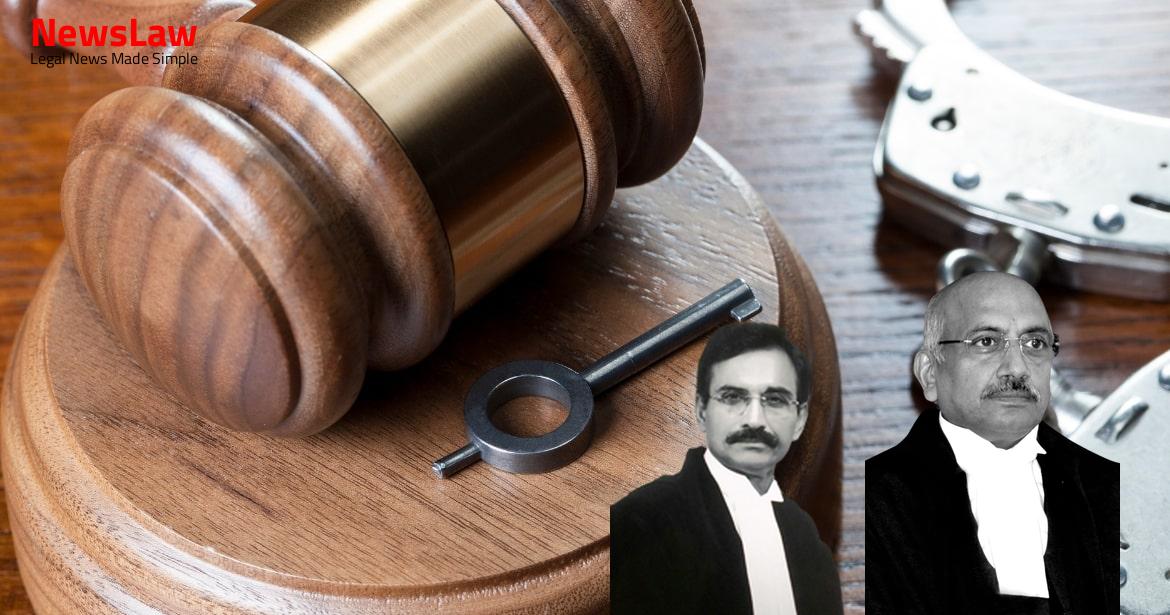In a recent legal case, the court delved into the intricacies of vicarious liability as outlined in the Negotiable Instruments Act. Directors of a company were under scrutiny due to dishonored cheques, but the court’s thorough legal analysis led to their exoneration. This case serves as a milestone in understanding the nuances of directorial responsibility in financial matters.
Facts
- Accused in a complaint under Section 138 of the Negotiable Instruments Act, 1881.
- Cheques with specified amounts and dates were involved.
- Directors of M/s MIEL e-Security Private Limited held responsible.
- Complaint filed after cheques were dishonored due to insufficient funds.
- Appellants filed petition under Section 482 of the Cr.PC which was dismissed.
- Section 141 of the N.I. Act imposes liability on persons responsible for the company’s affairs.
- Exception if the act was done without knowledge or after necessary precautions.
- Records were rectified to reflect relevant changes.
Also Read: Quashing of FIR on Grounds of Civil Nature: Legal Analysis
Analysis
- For fastening criminal liability, not every partner is presumed to know about the transaction.
- If it is proven that any act of a company was done with the connivance or consent of a director, manager, secretary, or any other officer, they will be deemed guilty and proceeded against accordingly.
- In the case of Monaben Ketanbhai Shah v. State of Gujarat, it was emphasized that the complainant must make necessary averments in the complaint to establish vicarious liability on the accused.
- The obligation to prove non-involvement in the business of the firm arises only if the complainant establishes necessary averments.
- In the case of S.M.S. Pharmaceuticals Ltd. v. Neeta Bhalla and Anr., it was reiterated that necessary averments must be present in a complaint before subjecting a person to criminal process.
- The appellant(s) had no role in the issuance of the instrument, as evident from Form 32 issued prior to the date of the cheque presentation.
- Veracity of Form-32 is undisputed by the Respondent.
- Resignation of the appellant(s) was a simpliciter act.
- Inherent powers under Section 482, CrPC may not apply in cases involving negotiable instruments without unimpeachable evidence or acceptable circumstances.
- The High Court discussed legal principles but did not address the factual evidence.
- No material has been presented indicating complicity of the appellant(s) in the alleged crime.
- Section 141 of the Act outlines the requirements for making a person liable under the provision.
- Resignations of the appellant(s) took place on 9 December 2013 and 12 March 2014.
- Cheques in dispute were issued on 22 March 2014.
- Appellant(s) should be discharged from prosecution as they had severed ties with the Respondent-Company before the disputed cheques were issued.
Also Read: Conviction Modified to Fine: Case Summary
Decision
- The appeals have been allowed.
- Pending applications have been disposed of.
- All criminal proceedings related to the appellant arising from complaints by the respondent are quashed.
- The judgments of the High Court of Judicature at Madras are set aside.
Also Read: Liability of Resigned Director for Negotiable Instruments: A Judicial Analysis
Case Title: RAJESH VIREN SHAH Vs. REDINGTON (INDIA) LIMITED (2024 INSC 111)
Case Number: Crl.A. No.-000888-000888 / 2024



